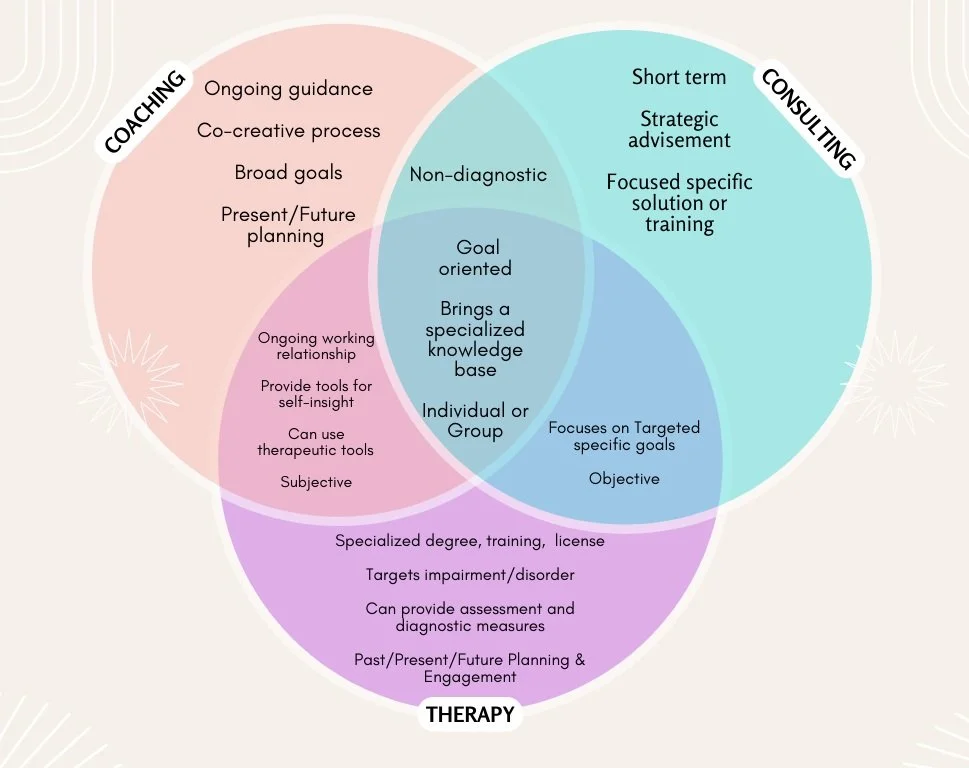Frequently Asked Questions
-
Speech-language pathologists, also called SLPs, are experts in communication.
SLPs can work with people of all ages, from babies to adults, and treat many types of communication and swallowing problems. These include problems with:
Speech sounds—how we say sounds and put sounds together into words. Other words for these problems are articulation or phonological disorders, apraxia of speech, or dysarthria.
Language—how well we understand what we hear or read and how we use words to tell others what we think. In adults, this problem may be called aphasia.
Literacy—how well we read and write. People with speech and language disorders may also have trouble reading, spelling, and writing.
Social communication—how well we follow rules, like taking turns, how to talk to different people, or how close to stand to someone when talking. This is also called pragmatics.
Voice—how our voices sound. We may sound hoarse, lose our voice easily, talk too loudly or through our noses, or be unable to make sounds.
Fluency—also called stuttering, is how well speech flows. Someone who stutters may repeat sounds, like t-t-t-table, use "um" or "uh," or pause a lot when talking. Many young children will go through a time when they stutter, but most outgrow it.
Cognitive-Communication —how well our minds work. Problems may involve memory, attention, problem-solving, organization, and other thinking skills.
Feeding and swallowing—how well we suck, chew, and swallow food and liquid. A swallowing disorder may lead to poor nutrition, weight loss, and other health problems. This is also called dysphagia.
https://www.asha.org/public/who-are-speech-language-pathologists/
-
Great Question! That decision is ultimately going to be up to you and your own individual goals. If you are looking for someone who specializes in growing and developing communication skills then an SLP has the background and expertise to help in many of those areas. Schedule a consultation to determine what is right for your needs.
-
There is often a lot of overlap between consultation, coaching, and therapy. All three supports are goal oriented and focused on bringing a specialized knowledge base to the table.
Therapist: An individual specializing in the therapeutic treatment of impairment, injury, disease, or disorder.
Coach: A person who provides guidance, instruction, or training in a particular area or subject.
Consultant: A person who provides expert advice professionally.
As a speech therapist my job tows the line between both therapy and coaching objectives, and a clinical background gives me an information base for expert consultation in the area of communication. This is because of the wide scope of practice for a speech therapist. Some areas of speech therapy are going to target and support disorder or impairment such as a swallowing dysfunction, learning disability, delay in speech sound production (such as making certain speech sounds), vocal chord dysfunction, or other neurological impairments that impacts communication. My job in many areas is to re-habilitate or train. There are many elements of a speech therapists job however that would look a lot more like coaching and a portion of that is going to be based on the perspective of a client. Accent modification or transgender voice modification for instance, are things that are within a speech therapists scope of practice, and may not be rooted in impairment but a desire to change the way their voice or speech sounds. For neurodiverse clients, some elements might be seen as impairments and some might be seen as desired changes to, improve quality of life, fulfill a goal, or simply to gain or refine a skill in communication. For many clients, a varied approach with a blend of services between coaching and therapy would provide a diverse approach to bolstering goals and success.
A good article on the topic of therapy vs. coaching is Life Coach vs. Therapist: 8 Myths Debunked (Plus How to Choose).
-
While my background and training allow me to work with individuals from birth through 99+, I tend to focus primarily on adolescents through adulthood. I have found that many clients in this age range often face challenges in accessing sufficient services or resources tailored to their specific needs. This gap highlights the importance of specialized support during these critical stages of development and life transitions.
-
At this time I only take Medicaid and the private insurance, Aetna.
I operate primarily on a private pay basis. This approach allows clients to access the services they need without the delays or restrictions often imposed by insurance. While insurance may cover rehabilitative services following a recent injury or diagnosis, it rarely covers habilitative care—the kind of support focused on quality of life, ongoing skill development, or long-term communication goals. Even when extensive documentation is provided, insurance companies frequently deny claims, including those with clear clinical justification. These denials can be time-consuming, inconsistent, and emotionally draining for clients. Private pay offers greater flexibility, privacy, and individualized treatment planning.
I am able to support insurance billing, and provide a superbill for insurance submission.
-
My current rate is $125/60-minute session for in-office and virtual sessions. (this includes 50 minutes of client facing time and 10 minutes of documentation).
Community based services are offered at $175/60-minute session.
Initial Evaluation and plan formation is $250.
I am able to offer a sliding scale for private pay clients with documentation.
-
I offer virtual, in-office, and community based services.
Community-based services are customized to each individual’s needs and can be scheduled in flexible time blocks. I offer sessions in preferred community locations (within ~30 miles of my office) to support skill-building in real-world settings and promote generalization and integration of skills.

